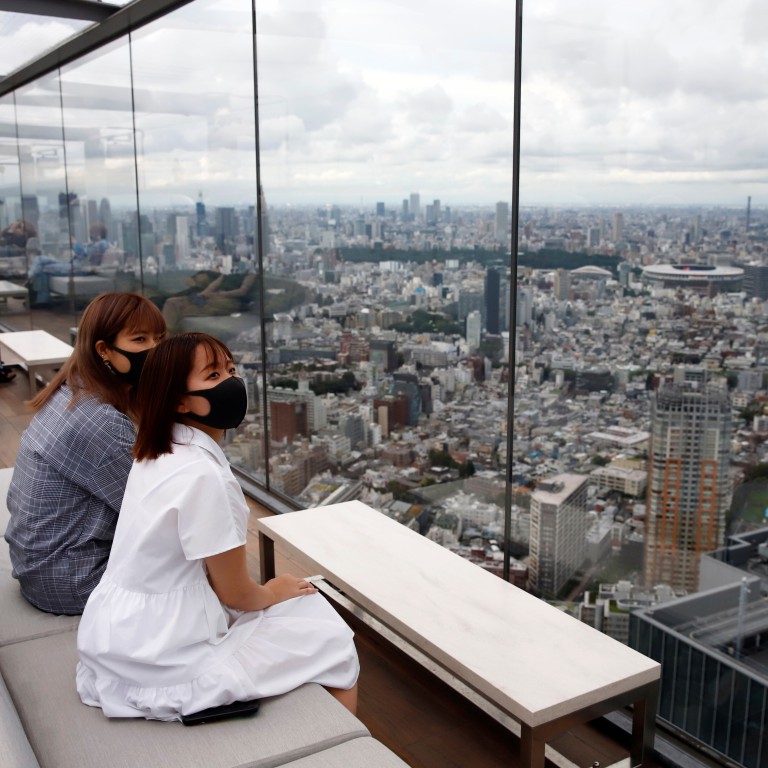
Coronavirus: Tokyo ends Olympic Games with over 4,000 new cases; Malaysia eases curbs for fully vaccinated
- The Olympic Games ended with over 4,000 new cases for the fifth straight day, while Sydney races to vaccinate its population to contain its Delta outbreak
- Elsewhere, Saudi Arabia will soon accept vaccinated foreign pilgrims seeking to visit Mecca, while Iran saw a record 39,600 new cases
Tokyo confirmed 4,066 new Covid-19 cases on the last day of the Olympic Games on Sunday, topping 4,000 for the fifth straight day, amid persistent concerns over the spread of the highly contagious Delta variant.
When the Olympics formally began on July 23, the Japanese capital reported 1,359 daily coronavirus cases, with the public fearing infections could hit record numbers. The number of new coronavirus cases has been mostly on the rise during the Games, with Tokyo’s daily tally hitting a record 5,042 on Thursday.
On the same day, tougher measures against the pandemic were introduced in eight prefectures newly placed under a quasi-state of emergency, with restaurant operators requested to cut opening hours and suspend serving alcohol.
The eight prefectures – Fukushima, Ibaraki, Tochigi, Gunma, Shizuoka, Aichi, Shiga and Kumamoto – joined five prefectures such as Kyoto and Fukuoka already subject to such restrictions effective for all the 13 areas until the end of the month. More stringent steps have been imposed in Tokyo and five other prefectures under a state of emergency.
TikTok-Tokyo! How athletes became influencers in a Games with no fans
Under the quasi-state of emergency, dining establishments not serving liquor are requested to close at 8pm. When the number of infections indicates a downward trend, serving alcohol may be allowed with a governor’s approval until 7pm at establishments taking anti-virus steps.
Japan’s cumulative total of confirmed coronavirus cases topped 1 million on Friday amid a recent surge that has seen daily cases continue to rewrite all-time highs, reinforcing fears that the medical system could collapse. The nationwide tally hit a record for the fourth straight day Saturday with 15,753 new infections.
Malaysia to ease curbs for fully vaccinated
The measures, which will allow dining in at restaurants, outdoor individual sports and interstate tourism, will take effect on Tuesday, Muhyiddin said in a televised address. “I understand, many are tired of the pandemic or are dealing with pandemic fatigue,” he said.
Malaysia has been under lockdown since June 1, and while daily infections continue to hit record numbers, several states last month began showing progress against the pandemic and started partially lifting curbs.
The measures announced on Sunday will not affect the capital Kuala Lumpur and surrounding areas, where infection rates remain the highest in the nation.
Malaysia to use hospitalisation rates to ease curbs; Manila sees vaccine rush
The government will also allow fully vaccinated citizens and foreign residents to quarantine at home upon returning from abroad, regardless of their state of residence.
Muhyiddin said the government was also considering easing restrictions in various sectors of the economy and he would make an announcement soon.
An individual is considered fully vaccinated 14 days after the second dose of vaccine, or after 28 days for single-dose vaccines.
Health authorities on Sunday reported 18,688 new infections, and a record death tally of 360. Vaccination rates have increased quickly since mid-July, however, and 66.4 per cent of the adult population has received at least one dose of vaccine.
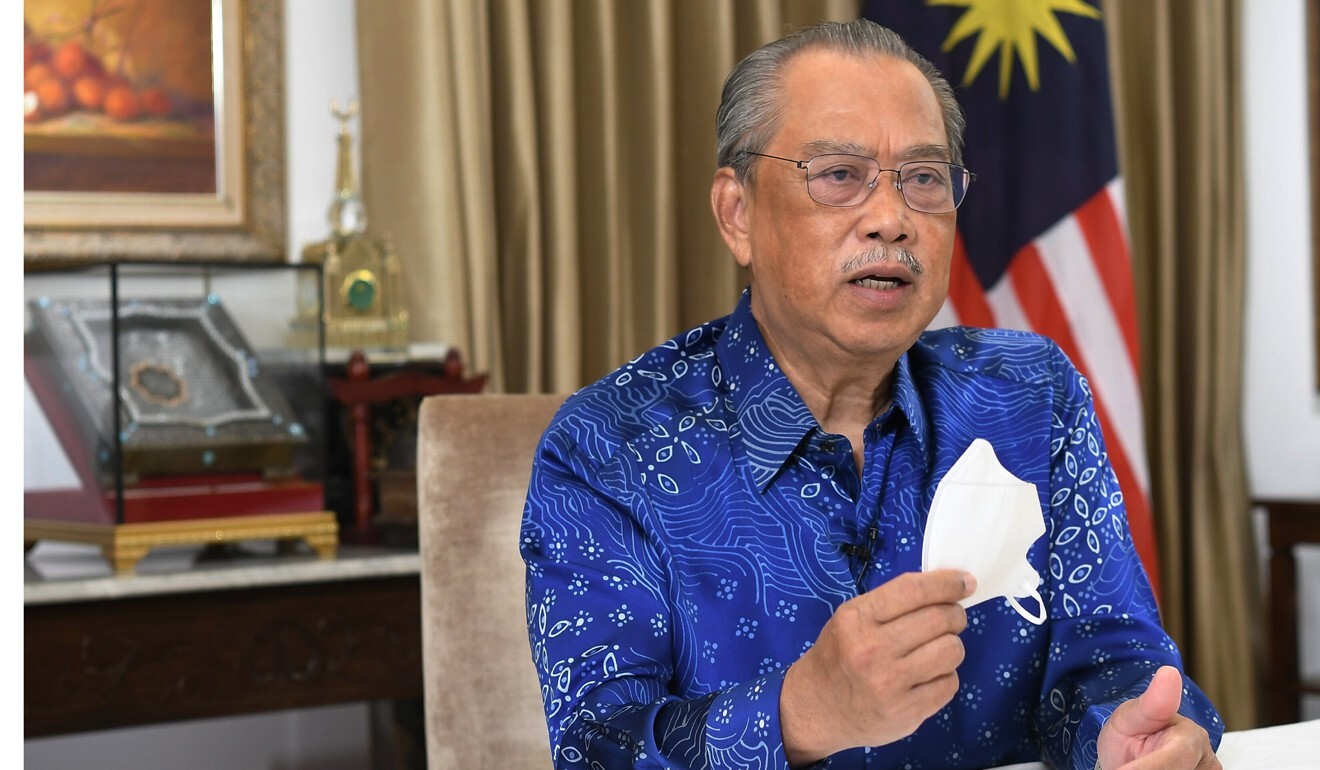
Record cases in Vietnam
Vietnam’s health ministry reported 9,690 coronavirus infections on Sunday, a record daily increase and up from 7,334 cases on Saturday. Most of the new infections were detected in the epicentre Ho Chi Minh City and the neighbouring provinces of Binh Duong and Dong Nai, the ministry said.
Vietnam successfully contained the virus for much of last year but has since late April been faced with a surge in cases fuelled by the highly contagious Delta variant.
The country has recorded 210,405 Covid-19 infections since the pandemic began, with at least 3,397 deaths, according to the ministry’s data.
Vietnam, with a population of 98 million, has so far administered nearly 8.9 million vaccine doses, but fewer than 900,000 people have been fully vaccinated.
Australia’s outbreak grows
New South Wales state recorded 262 new cases on Sunday, taking the outbreak that began in Sydney in mid-June to more than 5,000 cases.
State premier Gladys Berejiklian urged Sydney residents to get jabbed, with supermarket and fast-food workers taking priority in a fresh vaccination drive on Sunday. “This is a race. We’re keen to sprint to get those vaccination rates up,” she said.
Study on vaccines’ effect on Delta raises hopes for shorter isolation periods
Limited supply and pockets of vaccine hesitancy have slowed efforts to inoculate Australians, with just over 20 per cent of the population now fully vaccinated.
Health officials are now expecting supplies will be boosted in September, with the Moderna vaccine arriving for the first time and Pfizer imports set to increase.
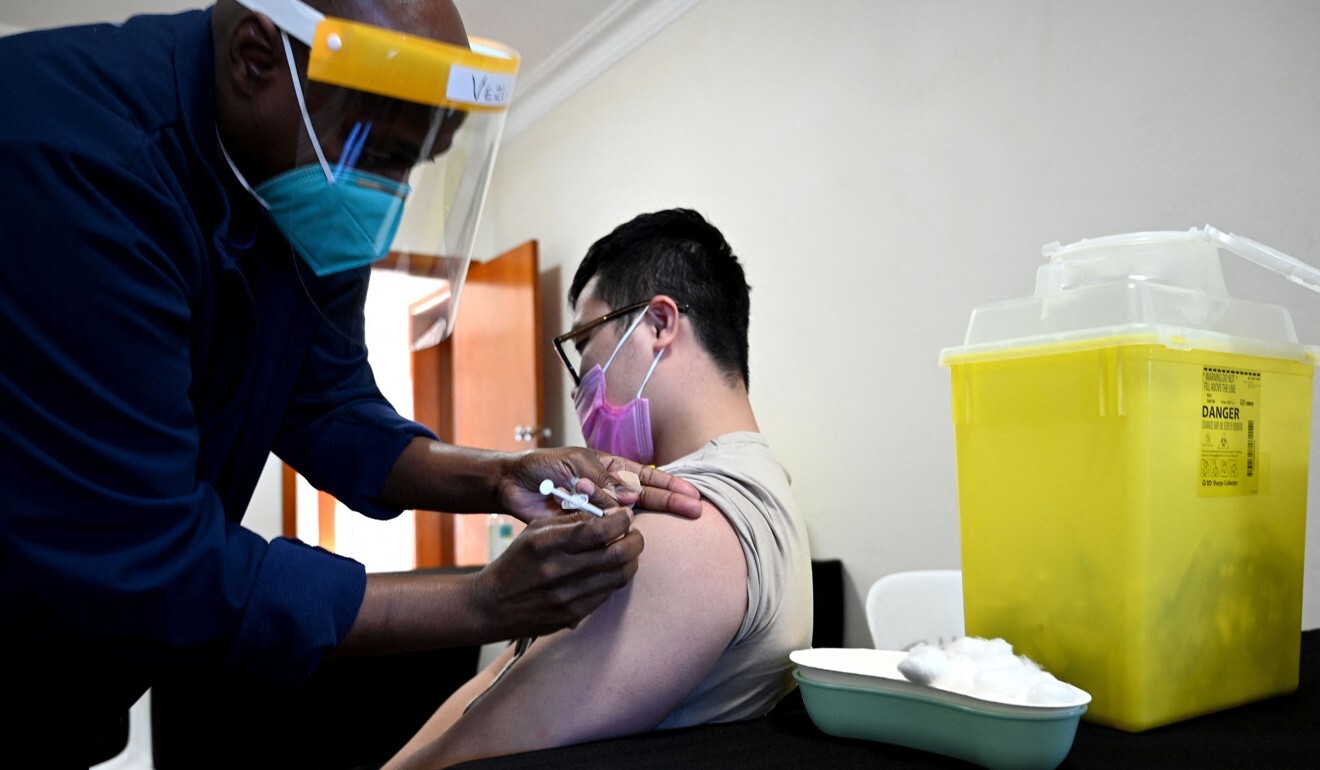
Meanwhile, Australia’s third-largest city of Brisbane came out of a lockdown on Sunday after containing a coronavirus cluster.
Millions of people in Brisbane and surrounding areas have spent just eight days under stay-at-home orders after an outbreak of more than 100 cases spread among several school communities.
Deputy Queensland premier Steven Miles said the region had achieved “something quite incredible” by seemingly bringing the outbreak under control.
“It looks like we may have been able to contain a Delta outbreak in just eight days of lockdown, just 10 days from when the first case was notified,” he said.
Australian Olympians left vomit in room, caused chaos on flight home
Restrictions on leaving the city and gatherings will remain in place for at least two weeks.
Authorities also announced a snap three-day lockdown for the northern city of Cairns, after a taxi driver spent 10 days infectious in the 150,000-strong community.
They will join millions of people in Melbourne and Sydney under stay-at-home orders, with Australia’s biggest city about to enter a seventh week of lockdown.
Australia has recorded about 36,000 cases of Covid-19 and 935 related deaths to date in a population of 25 million.
Saudi borders to reopen for vaccinated umrah pilgrims
Authorities in the ministry responsible for coordinating foreign pilgrims will from Monday begin “gradually receiving Umrah requests from various countries of the world”, the Saudi Press Agency reported.
The umrah is a pilgrimage that can be undertaken at any time – distinct from the haj, which takes place once annually – and usually draws millions from around the globe each year.
Indonesia’s indigenous shamans tell coronavirus to ‘go home’
The Covid-19 pandemic hugely disrupted both pilgrimages, which are usually key revenue earners for the kingdom – in normal times, they together rake in around US$12 billion annually.
Before Sunday’s announcement, only immunised pilgrims resident in Saudi Arabia were eligible for umrah permits, though the haj has taken place in a scaled down form since the pandemic began.
Any foreign pilgrims must be immunised with a Saudi-recognised vaccine and agree to undergo quarantine, the SPA report said, citing Saudi deputy minister Abdulfattah bin Sulaiman Mashat.
Saudi Arabia has registered nearly 532,000 coronavirus cases and more than 8,300 deaths.
Iran sees highest daily virus cases
Health authorities logged over 39,600 new cases and 542 deaths from the virus. The fatality count shatters the previous record set during Iran’s deadliest coronavirus surge that gripped the country last November, signalling the current wave is likely to only get worse.
The all-time highs push Iran’s total number of infections over 4.1 million and death toll over 94,000 – the highest in the Middle East.
Iran’s hardline leader Raisi seeks to end sanctions as he’s sworn in
The crush of new cases, fuelled by the fast-spreading Delta variant, have overwhelmed hospitals with patients too numerous to handle. The country has never seen so many Covid-19 patients in critical condition, with 6,462 more severe cases reported Sunday.
Supreme Leader Ayatollah Ali Khamenei, who has the final say on all state matters, last week ordered officials to discuss the possibility of a total national shutdown. The government has been loath to enforce such a lockdown, fearing the damage it would do to an economy reeling from years of American sanctions.
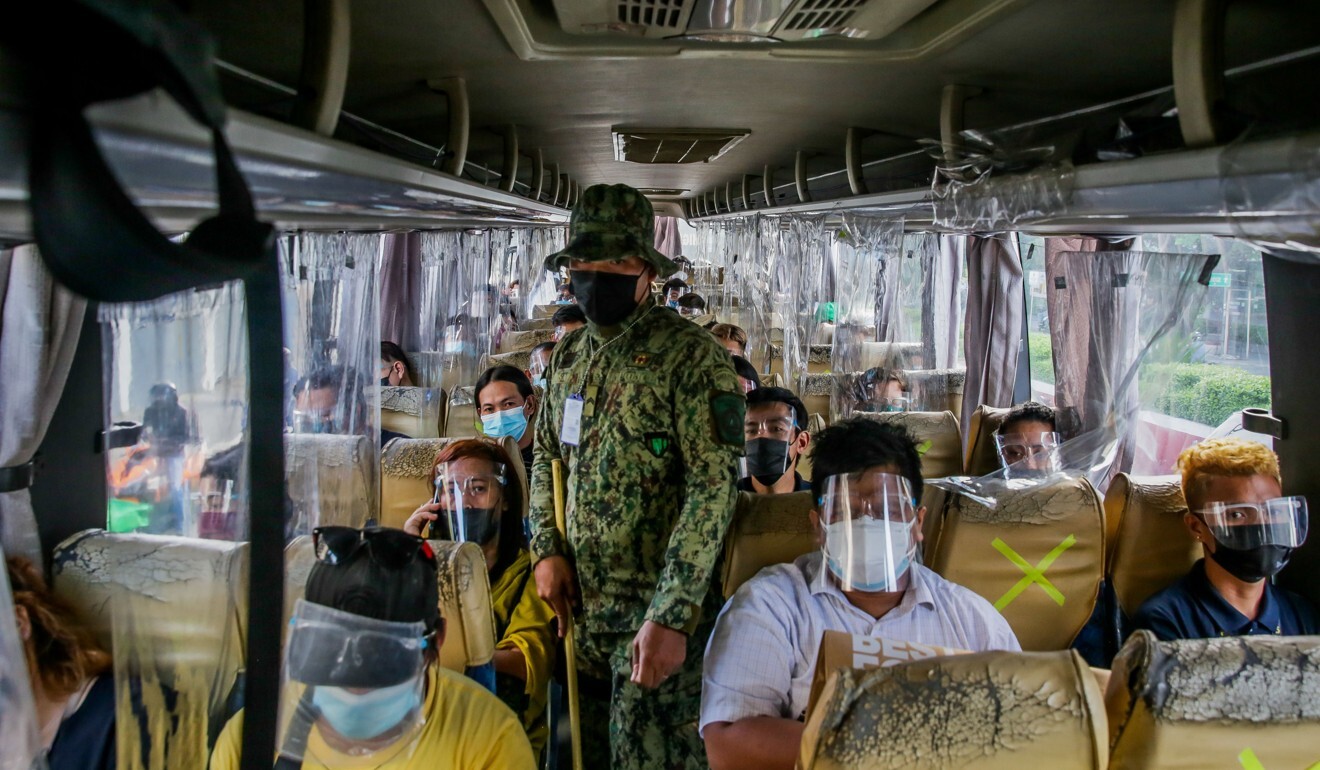
Philippines to lose US$3 billion a week amid lockdown: report
In a bulletin, the ministry said total confirmed infections in the Southeast Asian country had risen to 1.66 million, while the death toll had climbed to 29,122.
Anti-vaccine disinformation undermining Southeast Asia’s virus response
More than 20,000 people were apprehended for violating quarantine protocols, the paper said separately. About 9,600 people were arrested in the capital region and at least 10,800 in the neighbouring provinces of Bulacan, Rizal, Laguna and Cavite were caught for violating curfews and other protocols during the lockdown that started on Friday, it said, citing the police.
Thirteen hospitals in the capital region have reached full bed capacity for Covid-19 patients while 11 others are at more than 85 per cent capacity, The Manila Bulletin reported, citing the health department. Twenty-four other hospitals are at over 70 per cent capacity, it said.
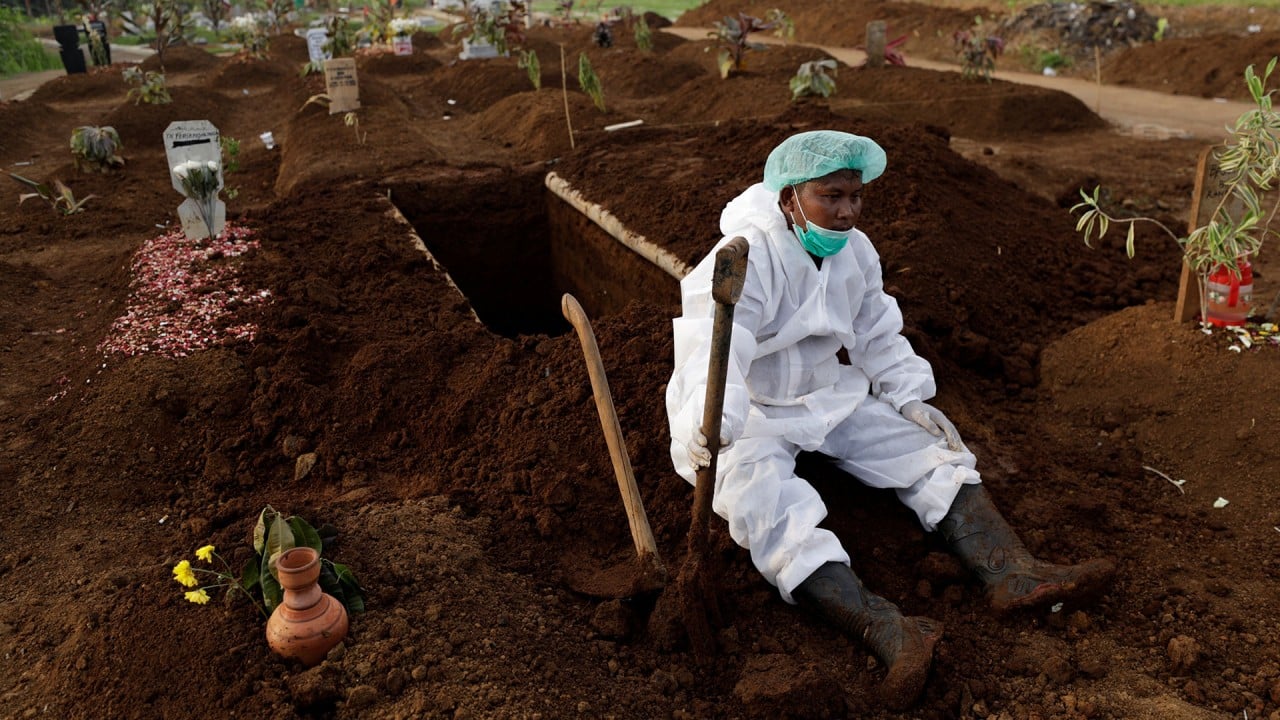
02:29
Indonesia’s Covid-19 death toll surpasses 100,000 as global infections rise above 200 million
Indonesia orders quick response on outer islands
The president, known as Jokowi, called for restrictions on mobility for at least two weeks, expanded testing and tracing, and for the military to isolate infected people. He instructed governors, regents and mayors to not delay vaccine distribution and promptly request more supplies from the central government as needed.
Red tape hinders Indonesia’s vaccination drive, even as cases surge
Southeast Asia’s largest economy has been struggling to contain the deadly coronavirus as hospitals have been overwhelmed and oxygen supply has been depleted. The death toll has risen fast – breaching more than 100,000 on August 4 – the second country in Asia to surpass that threshold.
The country had 1,588 fatalities on August 7, bringing the total to 105,598, according to the Health Ministry.
Brunei clamps down after first local virus cases in 15 months
Brunei has imposed strict curbs to halt the spread of Covid-19, after finding its first locally transmitted cases in the country in over a year.
Authorities shut all places of worship and postponed social events for two weeks as the health ministry recorded seven community infections.
Mass events were also limited to groups of 30 people over this period as school classes were moved online and restaurants barred from serving dine-in.
Malaysia’s reopening road map to include opposition input: finance minister
The tiny Islamic sultanate has largely remained coronavirus-free, logging three deaths since the pandemic began. More than half of its 347 infections so far were imported, with tight border controls and quarantine measures keeping the virus’ spread in check.
The country has also been steadily ramping up its vaccination process, with nearly 32 per cent of its 450,000 people getting at least one jab.
New restrictions in Israel
Masks are once again compulsory for outdoor events with more than 100 participants, and even events with fewer than 100 participants may now only be attended by: those who are vaccinated; recovered people; or people with a negative coronavirus test result.
Children, too, must now show a negative test result. The Israeli Cabinet approved the measures last week.
Israel to offer third coronavirus booster shot to older citizens
The number of new coronavirus infections reported in Israel within one day has already exceeded the 3,000 mark for several days in a row. The country also has new highs of Covid-19 patients seriously ill. As the Health Ministry reported on Sunday, 348 seriously ill patients were treated in hospitals on Saturday, including 71 in critical condition. The last time this number exceeded 300 was in April.
Just about 58 per cent of the population is fully vaccinated and more than 422,000 people have received a third booster shot.
Reporting by AFP, Kyodo, Bloomberg, Reuters, DPA, AP
